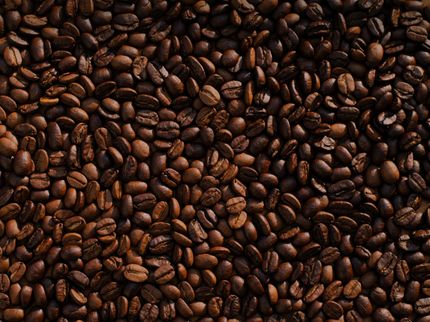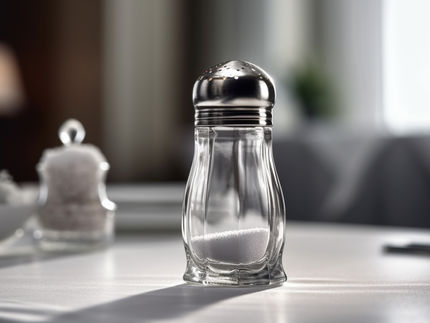Loss of taste and smell due to corona
It is becoming increasingly clear that loss of taste and smell are symptoms of a corona infection
Advertisement
People who have contracted the coronavirus may be infectious before showing any symptoms such as coughing or fever. However, many seem to lose their sense of taste and smell in the early stages of infection. Wageningen scientists are collaborating at an international scale to collect data on the loss of taste and smell in corona patients. This extensive research contributes to an early diagnosis. If you have experienced corona-like symptoms recently, you too can help by filling out the online survey.

stokpic/ Pixabay
The first reports of people losing their sense of taste and smell appeared as early as March. Cooks no longer able to taste garlic, people no longer able to smell a full diaper, litterbox, or the scent of shampoo. British physicians warned about this, as did doctors in other countries such as China and Italy.
“ Loss of smell and taste could be early symptoms of COVID-19. If people experiencing this, are quarantined immediately, it could mitigate the spread of the disease.” Sanne Boesveldt, associate professor Sensory science and eating behaviour
‘It is becoming increasingly clear that loss of taste and smell are symptoms of a corona infection. There are even cases where this was the only symptom’, says Sanne Boesveldt, associate professor at the Wageningen Department of Human Nutrition and Health. She is specialised in research on taste, smell and eating behaviour.
Better view
Small scale studies have already shown that thirty up to ninety per cent of the corona patients experience a loss of taste and smell. But the way these studies were conducted varies widely. For better insight, over six hundred scientists of the Global Consortium for Chemosensory Research (GCCR) initiated a large international study. Boesveldt coordinates the research in the Netherlands. Within the Netherlands, Wageningen holds a unique position as it is the only university to conduct coherent research on taste, smell and nutrition. Boesveldt is considered the leading expert in this field.
Questionnaire
In collaboration with other GCCR researchers, Boesveldt designed a survey. Anyone that has experienced corona-like symptoms over the two weeks can fill out the questionnaire. If you have been tested positive for COVID-19, the disease caused by the coronavirus, you are urged to participate.
Why the limited time of a fortnight? ‘Our questions relate specifically to the order in which the symptoms appeared and how long they lasted. The longer ago the infection occurred, the fewer details people are likely to recall,’ Boesveldt explains. Filling out the survey will take approximately ten minutes. The survey may be accessed online or through scanning the QR-code on the right using your smartphone.
Early diagnosis
The questionnaire is available in twenty different languags. This way, researchers hope to gather a lot of information, allowing them to better understand the virus. For example, it is still unclear at what stage the loss of taste and smell occurs, and how long it persists. ‘It does seem to return once people are recovered’, Boeveldt states.
Furthermore, extensive, and thus statistically reliable, data may contribute to an early diagnosis of the disease. ‘There are indications that the loss of smell and taste occurs at an earlier stage than symptoms such as coughing or fever. If people are quarantined as soon as they experience a loss of taste or smell, this could mitigate the spread of the disease.’
Affected olfactory cells
The research focusses primarily on a better understanding of the virus, Boesveld clarifies. She suspects that a coronavirus infection only affects the sense of smell. In general, the sense of taste is dependent mainly on smell. ‘When people come to the Taste and Smell Centre claiming they “can’t taste anything”, their tastebuds are intact in 95 per cent of the cases. People lose their sense of taste when the scent is absent.’
When our nose is congested due to the common cold, we generally have trouble smelling. However, in COVID-19, something peculiar seems to occur. Boesveldt: ‘The coronavirus appears to latch on to receptors – specialised cells that are sensitive to stimuli- that are common in the nasal passage. We believe the virus affects the tissue containing the olfactory cells that would normally pass the information on scent on to the brain.’
Home test for taste and smell
Boesveldt and other researchers are currently working on developing a do-it-yourself test for people suspected of having COVID-19. ‘This will allow people to determine whether their sense of taste and smell has been affected and to monitor the developments’, Boesveldt says. ‘It is not all that easy to find products that everyone around the world has available at home. Sugar and salt are fairly common, but something sour or bitter, such as lemon juice, vinegar or coffee, is already more challenging. For the scent test, we want to use shampoo. Although everyone has a different brand, the scent of the product will remain constant over time.’
The DIY test will become available before the summer. Researchers will continue to gather and analyse data. The survey will remain online for a lengthy period. Boesveldt: ‘This will help us to follow the development of a possible second or third wave of the virus.’




























































